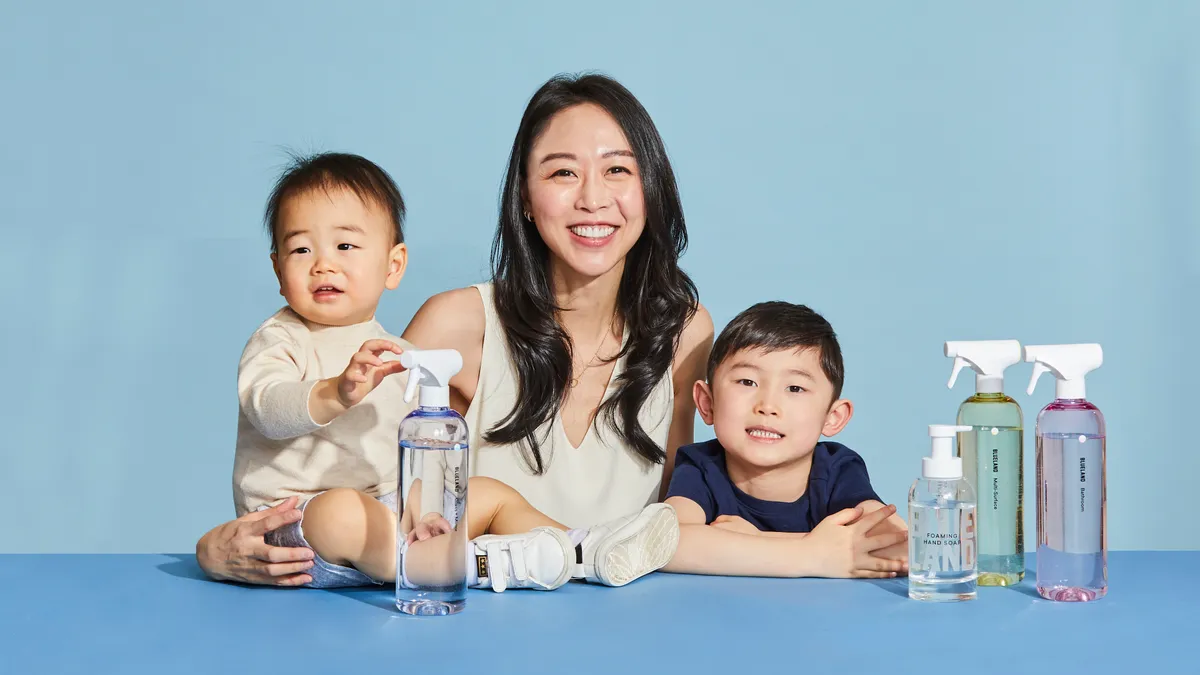Although last year brought on a slew of macroeconomic challenges, refillable home care brand Blueland became profitable in 2022.
“Another area that we've been focused on since the very beginning has been to also have this business be financially sustainable. It was a goal for us that we set at the beginning of 2022 for us to get to profitability in 2022,” Blueland co-founder and CEO Sarah Paiji Yoo told Retail Dive. “And we did, and that has been a really exciting milestone for us.”
The company’s products are centered around minimizing environmental impact by providing refills for items such as toilet bowl cleaners, mirror sprays and body wash. Although it raised $20 million in February of last year, the chief executive said that financial independence has been important to the company since its focus on sustainability doesn’t always align with the desires of outside capital.
“A lot of times, some of the decisions that we have to make, there is a trade-off between profits and prioritizing people and the planet,” she said. “My co-founder John and I, we've always believed that if we want to be able to make the best decision for the planet every time, the more financially successful and independent we are, the more our ability to do that will be insured.”
Blueland has been expanding more into wholesale over the past year, which is a shift from its dedication to its DTC channel since launching in 2019.
While the company’s body wash first became available on Target’s website, the brand on Tuesday launched the product into 250 of the retailer's stores. Blueland is also releasing its toilet bowl cleaner tablets at all Costco stores on April 1.
The brand has also formed wholesale partnerships with retailers like The Container Store and Bed Bath & Beyond.
Blueland was committed and focused on its direct-to-consumer channel for the first three years after launching, in part because the company valued the first-party data it could gather. Over the years, the brand has been able to use its DTC channel to conduct customer surveys and test out products.
“We were very intentional in saying no to retail opportunities early on because we thought it was really important to have that direct line of sight into the data, preferences and behaviors and consumers for what initially was still a new behavior for the category,” Paiji Yoo added.
However, the brand always knew that wholesale retail would be an important opportunity and the company has been conscious of the fact that consumers tend to prefer buying cleaning products in stores, according to the chief executive.
“It's very exciting to be entering this next chapter, which we feel sort of incredibly prepared and equipped for given all the work that we've done in the first few years,” Paiji Yoo said.
















